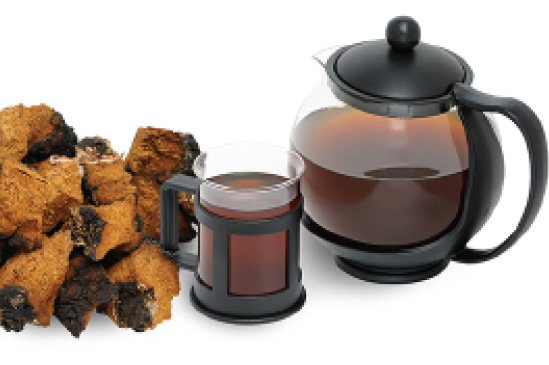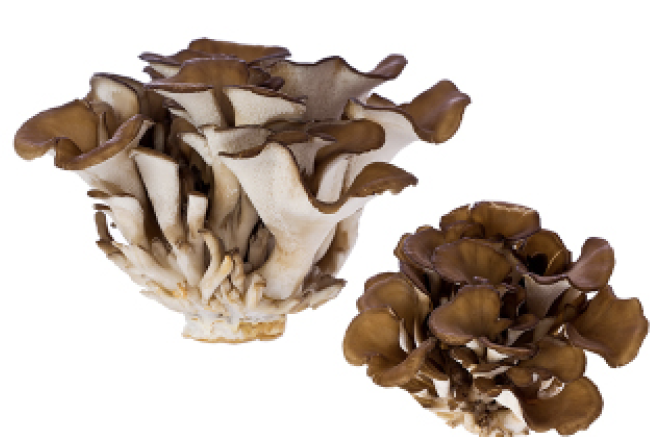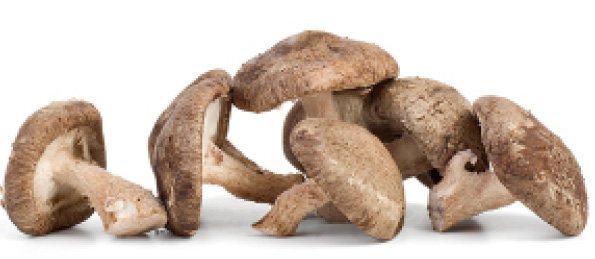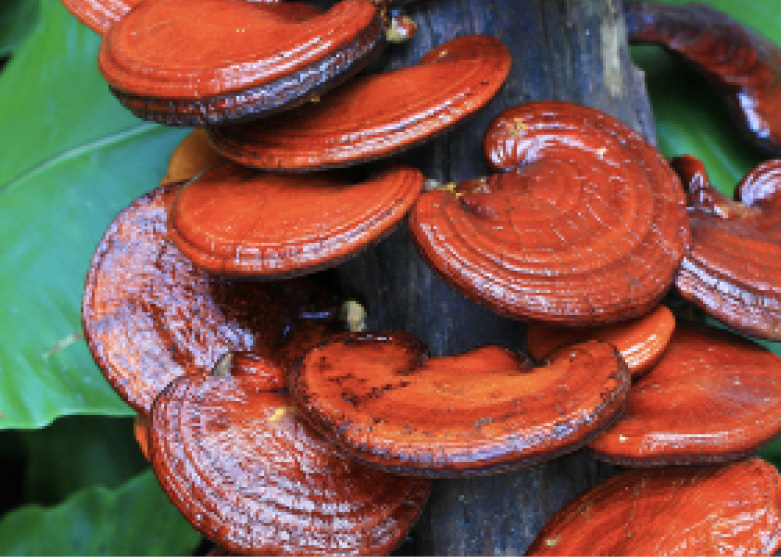
These mushrooms are becoming commonly available as growers are mastering the art of their husbandry. Expect them all to hit our grocery shelves and expect to be able to buy blends as well for the stirfry and consumption as a meat replacement.
Way too easy to prepare compared even to meat.
The point is that no one is marketing the cancer blocking aspects of such a blend and also the vitimin D aspect as well. Yet we are now leaping ahead in availability.
so yes, this is all coming
\
7 Amazing Medicinal Mushrooms for Cancer Care and Prevention
July 21st, 2022
By Ty Bollinger
Guest Writers for Wake Up World
https://wakeup-world.com/2022/07/21/7-amazing-medicinal-mushrooms-for-cancer-care-and-prevention/?
Medicinal mushrooms have a rich history in many ancient Asian healing practices, and have been customarily prescribed and used for countless ailments. There is mounting scientific evidence to prove that certain varieties of mushrooms are among the most powerful functional foods for cancer prevention and treatment. With enough science on their side, could mushrooms soon become a common solution for cancer patients trying to avoid the horrors of chemotherapy and radiation?
In learning about the benefits of mushrooms, it is important to note that while side effects exhibited are often mild, it is still necessary to discuss with your health care provider before using.
#1. Agaricus blazei Murill: The Secret of the Brazilian Rainforest

Native to the Brazilian rainforest, the Agaricus blazei Murill mushroom has been used for centuries throughout South America as a natural healing medicine due to its high density of immune-regulating polysaccharides and ?-glucans. Polysaccharides, which include ?-glucans, are basically just the carbohydrate storage molecules that make up the structure of mushrooms.
More than half a century has passed since these vital structural components were first discovered in plants. The good news is that science has since found that certain mushroom polysaccharides work as functional food to thwart the development of all sorts of diseases, including bacterial infections, allergies, and many forms of cancer.
According to a 2011 study published in the journal Advances in Pharmacological Sciences, the polysaccharide compounds in the Agaricus blazei Murill mushroom are not only powerful anti-inflammatory agents, but they’re also immune stimulators. This means they instruct the body about how to stir up the appropriate immune cells to prevent the formation of disease.
Included in this breakdown are NK cells, or “natural killer” cells, which closely monitor the surfaces of healthy cells to prevent abnormal expression and tumor growth. The Agaricus blazei Murill mushroom is also rich in ergosterol, a precursor of vitamin D that in laboratory tests was found to inhibit the growth of breast cancer cells.
These two substances – polysaccharide compounds and ergosterol – according to the study, work in tandem to induce cell apoptosis, or programmed cell death, in leukemic cells. They also prevent cancer tumors in general from developing the blood vessel systems required for growth and spread.
An earlier paper published in the Scandinavian Journal of Immunology found that the Agaricus blazei Murill mushroom exerts powerful anti-tumor effects in myeloma (a type of leukemia), fibrosarcoma (a type of bone cancer), as well as ovarian, lung, and prostate cancers.
When administered alongside other medicinal mushrooms, Agaricus blazei Murill was also shown in vitro to suppress the growth and spread of breast cancer cells. And in a mouse model, this same mushroom was shown to destroy prostate cancer cells and prevent tumor growth.
Boost Your Immune System with Supplemental Agaricus blazei Murill
What makes Agaricus blazei Murill especially unique is the way in which it activates the immune system.
Your body has two types of immunity, innate and adaptive, that work both independently of one another and in unison to protect against disease. Innate immunity is non-specific, in that it provides generalized protection against all diseases – a first line of defense, if you will. Adaptive immunity, on the other hand, is antigen-specific, meaning the body will respond to an invader that gets past the innate immune system by creating specialized immune cells.
Agaricus blazei Murill engages both of these systems at once, hence its designation as a “broad-spectered” medicinal mushroom. The fungi is also rich in B vitamins, trace minerals, fatty acids, and other key elements like magnesium and phosphorus that provide added nutrient support.
Proper use of Agaricus blazei Murill is dependent upon the condition being addressed. For cancer, and particularly breast cancer, taking it in concentrated extract form is one viable option, or it’s also available in encapsulated and freeze-dried form. Some manufacturers procure only Agaricus blazei Murill varieties that have been specifically grown without agaratine, an aromatic compound that, while antiviral in nature, has been suspected of being potentially carcinogenic (though this compound is destroyed during heating or cooking).
My advice if you’re currently cancer-free is to begin supplementing your diet with Agaricus blazei Murill (and the other cancer-fighting mushrooms in this article) in order to jumpstart your immune system and maximize your natural killer cell function. The best options are those with high levels of polysaccharides and ?-glucans, from mushrooms with mature fruiting bodies.
#2. Cordyceps: Related to Penicillin, But Even Better

If you’ve ever heard the word “synergy” used in reference to a particular “superfood” or nutritional supplement, you may already know what it implies: that certain nutrients and foods work better when combined with other nutrients and foots. Medicinal mushrooms are much this way, with Agaricus blazei Murill often being paired with another immune-stimulating fungus known as Cordyceps sinensis.
Found naturally only at the highest altitudes of the Himalayan Plateau in Tebet, Cordyceps has been a staple of Traditional Chinese Medicine (TCM) for thousands of years. Only within the past roughly 30 years has this exotic fungus gained the attention it deserves in the West as a medicinal healing food. (Fun fact: Cordyceps grows from the mummified remains of insect larvae.)
Because of its rarity, Cordyceps can fetch a higher price than other mushrooms in its class. But this anti-cancer healing food is worth every penny. Ancient Chinese royalty used to brew it into a special soup broth and drink it together with various other foods, mushrooms, and nutrients to treat specific diseases (another great example of synergistic pairing), or simply to maintain tip-top health.
One example of this is duck meat and Cordyceps soup (in a 4:1 ratio), which was traditionally consumed as a way to help improve lung and kidney function.
Incorporating functional foods such as medicinal mushrooms into the foods we eat is not only the traditional Chinese way of maintaining health. It’s also what the Greek philosopher Hippocrates meant when he stated what has now become the mission statement of natural health advocates everywhere:
Let food be thy medicine and medicine be thy food.”
Nothing could be truer, especially when it comes to fungi such as Cordyceps. With more than 650 known varieties, Cordyceps is currently undergoing rigorous scientific review for its potential role in the treatment of a broad spectrum of chronic diseases, including cancer.
Cordyceps is related to the Penicillium fungi, from which the popular antibiotic penicillin is derived. It is used as a functional food in the treatment of everything from chronic fatigue and hiccups to sexual dysfunction, kidney disease, and generalized cancer. Some oncologists are even now advising their patients to take Cordyceps as an adjunct to conventional chemotherapy and radiation treatments.
Cordyceps contains a novel bio-metabolite known as Cordycepin, or 3’deoxyadenosine, that science has uncovered offers antioxidant, anti-inflammatory, and anti-cancer benefits. This naturally-occurring compound boosts immunity, liver function, kidney function, and cardiovascular health. It also functions as a powerful antitumorigenic and anti-cancer medicine.
#3. Turkey Tail: Funny Name, Serious Breast Cancer Fighter

Perhaps even more impressive in the realm of anti-cancer “shroomery” is the turkey tail mushroom, known taxonomically as Trametes versicolor. This colorful fungus is likewise a staple in Traditional Chinese Medicine, and is most commonly brewed into a simple tea for this purpose.
Turkey tail has a broad-spectrum polysaccharide profile, which is why it’s been the subject of dozens of studies looking at its potential in treating cancer. Many naturopathic doctors (NDs) and integrative oncologists already recommend turkey tail extract to their breast cancer patients. This is because of its incredible ability to enhance both the innate and adaptive immune responses that protect the body against disease formation.
Pre-clinical studies in animals suggest that turkey tail may be effective at treating both estrogen receptor negative and positive breast cancers by undoing (or at least improving) the immune damage caused by chemotherapy and radiation. This powerful mushroom extract improves the function of immune components like NK cells, which are absolutely essential for thwarting breast cancer development.
In 2012, the U.S. Food and Drug Administration (FDA) approved a human clinical trial to evaluate the suggested health benefits of turkey tail, and the National Institutes of Health (NIH) even agreed to fund it. This Phase I trial reiterated what many earlier studies have found concerning the therapeutic immune properties of turkey tail.
In their final report, the authors of the study confirmed:
Based on our findings, Tv (turkey tail) mushroom therapy orally administered in the postradiotherapy setting may enhance lymphocyte numbers and NK cell tumoricidal activity.”
It is important to note that drug companies cannot patent mushrooms. Due to this fact, funds typically won’t be allocated to study them unless they come from private institutions or government grants. However, this should be a positive as many studies only seek to isolate one part of a plant or mushroom to patent as a drug. As mycologist (mushroom expert) Paul Stamets states,
Isolating one constituent from the others denatures and lessens the broad-spectrum potency of this natural, functional food.”
Turkey Tail Cures 90-Year-Old Woman of Stage IV Breast Cancer
While this is good news for women with breast cancer who’ve already undergone conventional therapies, it might even be better news for women who haven’t. If turkey tail is powerful enough to reverse the immune damage inflicted by chemotherapy and radiation while still aiding in the eradication of cancer cells from the body, imagine what it can do (and so much more quickly!) when the immune system isn’t damaged by chemotherapy and radiation.
Paul Stamets (mushroom expert and founder of Host Defense) gave a TED MED talk in 2011 in which he discussed the many amazing health benefits of medicinal mushrooms. One of the mushrooms he sang praises about was turkey tail, which is the reason why his nearly 90-year-old mother is still alive after suffering through one of the worst cases of Stage IV breast cancer her doctor had ever seen.
After being told she only had four months to live, with no option for radiation treatments due to her age, Stamets’ mother decided to take the unexpected advice of her oncologist, who advised her to try turkey tail. Her resultant transformation, especially at 90 years of age, has been nothing short of miraculous.
Stamets says his mother, whose right breast had swollen to five times its normal size due to extreme systemic cancer, took four grams of turkey tail extract daily via capsules split up into two doses (two grams in the morning, two grams in the evening). More than six years have now passed since that initial prognosis, and Stamets’ mother is alive and in excellent health.
With $5.4 million in funding assistance from the NIH, Stamets is now working alongside his colleagues at the Bastyr Integrative Oncology Research Center near Seattle, Oregon to understand the impact of turkey tail on another form of cancer. This study is investigating how turkey tail can help men avoid and treat prostate cancer through comprehensive immune enhancement.
We are now rediscovering that which our ancestors long ago knew: That mushrooms are deep reservoirs for very powerful medicines,” says Stamets.
#4. Chaga (Inonotus obliquus)

As I mentioned above, medicinal mushrooms are “superfoods” by nature, meaning they’re densely packed with many of the most important things your body needs to stay optimally healthy: macronutrients, micronutrients, antioxidants, vitamins, and minerals. They’re a cut above most other foods, possessing some of the world’s highest known levels of immune-boosting compounds.
The chaga mushroom, also known scientifically as Inonotus obliquus, is no exception. This unusual polypore mushroom is regarded by the respected Memorial Sloan Kettering Cancer Center’s Integrative Medicine Service as a traditional healing remedy that modern science has affirmed both stimulates the immune system and kills cancer cells.
Included among chaga’s scientifically-backed health benefits are its ability to:Prevent and treat cancer
Stimulate immune function
Reduce chronic pain symptoms
Support gastrointestinal health
Normalize cholesterol and blood pressure levels
What makes chaga particularly amazing from an immune perspective is its ability to masterfully govern how the immune system responds to various changing stimuli. When an immune boost is needed to combat a harmful invader, the compounds in chaga mushrooms know exactly what to do to get the job done. When an immune response is too strong (such as in the case of an autoimmune disorder), chaga is also there to bring it back down to normal levels.
In immunotherapeutic terms, this makes the chaga mushroom a biologic response modifier, or BRM. This is exactly what cancer patients need to kick their natural immune responses into high gear to eradicate the disease. Neither chemotherapy nor radiation treatments are capable of exerting this critical BRM response, which is what allows the body to heal itself naturally via the immune system.
A 2011 paper published in the International Journal of Medicinal Mushrooms sheds further light on this, revealing that extracts of the chaga mushroom show potent anticancer effects in vitro, stopping cell tumors from reproducing, morphing, and spreading.
A few years prior, researchers from China identified chaga extract as exhibiting powerful anti-proliferative and apoptotic (programmed cell death) effects in the human hepatoma (liver cancer) cell lines HepG2 and Hep3B. Using some of the most comprehensive diagnostic testing methods available, researchers found that chaga extract weakens cancer cells, prevents them from growing and spreading, and even triggers their death.
In order to get the most out of chaga, you’ll need to find an extract that contains the highest levels of the mushroom’s most bioactive constituents, which include key polysaccharides, triterpenoids, lanostane phenolic compounds, and melanin.
If you live in the Northern hemisphere and have birch trees in your area that have not been sprayed with pesticides and/or other chemicals, you can learn how to identify and harvest chaga yourself for free!
#5. Maitake (Grifola frondosa)

Another medicinal mushroom worthy of consideration is maitake. Similar in appearance to a pinecone, maitake literally means “dancing mushroom” in Japanese. As legend has it, ancient Samurai would actively seek out this precious fungi from deep within mountain forests. When they found it they would jump for joy because of its extensive healing capabilities.
Maitake mushrooms are a staple food in many Asian cultures, and for good reason. They’re an amazing anti-diabetic food that’s rich in disease-fighting antioxidants. Maitake mushrooms also help regulate cholesterol levels and have been shown in multiple scientific studies to fight cancer tumors.
Just like chaga mushrooms, maitake mushrooms are non-toxic, which means you can consume therapeutic doses of them without having to worry about harmful side effects. Maitake mushrooms also make a great meat substitute.
As with chaga, maitake contains high levels of immune-boosting polysaccharides that studies have shown exert an immunomodulatory effect against cancer. A 2009 human clinical trial published in the Journal of Cancer Research and Clinical Oncology reveals that maitake can help rid postmenopausal women’s bodies of breast cancer cells.
In a study, 34 postmenopausal breast cancer patients were assigned to take daily liquid doses of maitake at 0.1, 0.5, 1.5, 3, or 5 milligrams per kilogram (mg/kg) for three weeks. Peripheral blood samples from these women were collected seven days prior to the study’s launch, just before starting the protocol, and again at days 7, 14, and 21 after its launch.
In the end, it was determined that maitake is a powerful biologic response monitor much like chaga that’s capable of both enhancing and inhibiting the immune system, depending upon what the body needs to fight a particular disease.
Maitake may also be an effective remedy for bladder cancer. Researchers from New York Medical College (NYMC) found that therapeutic doses of maitake combined with vitamin C is a powerful remedy for this common condition. Patients who took it saw a 90% death rate of their bladder cancer cells!
Vitamin C so enhances the cytotoxic bioactivity of maitake that NYMC declared it to be effective as a sole, rather than complementary treatment for bladder cancer.
D-fraction, a proteoglucan (a powerful beta-glucan compound), is found in many medicinal mushrooms and has been scientifically shown to fight tumors by activating immune system macrophages, T cells, and “natural killer” (NK) cells.
#6. Shiitake (Lentinula edodes)

The shiitake mushroom ranks among the most widely cultivated edible mushrooms in the world. This East Asian fungi provides incredible immune support as well, supporting healthy blood platelet aggregation, as well as possessing powerful antibacterial and antiviral properties.
Shiitake has been extensively studied for its role in preventing cardiovascular disease, and also contains special biological predecessors to a protein known as interferon that inhibits viruses from replicating and spreading throughout the body.
As with the other mushrooms previously mentioned, shiitake mushrooms are rich in beta-glucans, a class of long-chain polysaccharide compounds noted in the scientific literature for being powerfully anti-carcinogenic. Beta-glucans activate the body’s complementary immune response system and enhance its use of macrophages and natural killer cells, which are critical for blocking tumors from forming.
Shiitake also contains a special sugar molecule known as lentinan that’s been extensively studied for its ability to enhance functions of the immune system responsible for inhibiting cancer growth. Lentinan was shown in a 2008 animal study published in the journal Advances in Therapy to help improve the survival rates of patients with various forms of cancer.
Lentinan also works to strip pathogenic bacteria and viruses of their ability to proliferate, further protecting the body against disease.
A human intervention trial conducted by researchers at the University of Florida found that healthy participants who consumed just one cooked shiitake mushroom daily for four weeks experienced major improvements in gamma delta T-cell functionality. These same individuals also saw noticeable reductions in inflammation, a leading cause of cancer and other serious illnesses.
Japanese researchers conducted their own inquiry into shiitake using mice as subjects. They came to the same conclusion about lentinan: that it exhibits strong anti-tumor benefits.
Mice given doses of a lentinan polysaccharide preparation containing just 1 mg/kg of lentinan (some were given much higher doses at 25 mg/kg) experienced “almost complete” regression of tumors, with no signs of toxicity.
In Japan, shiitake ranks among the top two medicinal mushrooms used in alternative cancer treatment (the other top mushroom is Agaricus blazei, which I discussed earlier). This says much about what this potent fungi is capable of when it comes to supporting immunity.
#7. Reishi (Ganoderma lucidum)

Arguably the oldest and most prized of the traditional healing mushrooms, reishi is considered in some cultures to be the “queen of mushrooms” due to its incredible healing potential. For over 4,000 years, the reishi mushroom has held a special place in the natural healing arts. Not only because it’s a powerful immune booster, but also because it’s adaptogenic and hormone balancing.
Adaptogens are non-toxic herbal compounds that help the body respond and adapt to stress-inducing stimuli. They work by normalizing and balancing the adrenal glands to help minimize the effects of disrupting life circumstances that would otherwise take a major toll on the body, both physically and mentally. As stress is a notable contributor to chronic diseases such as cancer, adaptogens are a critical component of any anti-cancer regimen.
Reishi mushrooms also contain an exceptional triterpene profile. Triterpenes help support and regulate the endocrine system, which is your body’s manufacturing system for hormones. Triterpenes are ultimately what help give you energy during the day and rest at night. They’re the wind in your sails when you need to get things done, and the calming solace you need when it’s time to de-stress, rest, and get a good night’s sleep.
Numerous laboratory studies and pre-clinical trials have found that reishi triterpenes show immense promise in treating cancer by up-regulating the immune system. Both laboratory and animal subjects have confirmed the anti-cancer benefits of reishi.
Chemotherapy and radiation treatments deliver non-targeted, systemic doses of lethal poison that harm both healthy and malignant cells. Reishi, on the other hand, is a non-toxic, selective anti-cancer food that cancer patients have used with great success!
In one study looking at its benefits for inflammatory breast cancer (IBC), immunodeficient mice given reishi extract for 13 weeks showed demonstrable reductions in tumor growth and weight. These benefits weren’t just limited to IBC. Reishi was found to be a powerful natural therapeutic for many other forms of cancer as well!
Since reishi is traditionally consumed as a brewed tea, one of the easiest ways to incorporate it into your diet is to buy an instant reishi product.
Mushroom Supplementation: Choosing the One for You
It’s important that you understand the different ways that mushrooms are prepared and sold, and how each method stacks up in terms of potency and bioavailability.
Mushrooms are typically sold in raw and extract form (both as liquid and powder). Some mushrooms are even sold “infused” into other food and beverage products.
Raw mushrooms might taste great in food, but believe it or not, this form isn’t the best way to unlock their diverse therapeutic benefits. Many of the polysaccharides, antioxidants, and metabolites found in medicinal mushrooms only become “activated” through special extraction and concentration methods that make them digestible and maximize their bioavailability.
Powdered mushrooms are better than raw mushrooms in this regard, but they’re still not the most potent when it comes to bioavailability. Liquid mushroom extracts are typically the best, as these have been subjected to solvent extraction mediums such as hot water or alcohol that pull all the nutrients out and concentrate them to maximum potency. High-quality liquid mushroom extracts will typically bear labels that clearly indicate their nutrient content (i.e. “35% polysaccharides,” or “15 mg ergosterols”).
Proper extraction methods such as steam and alcohol are what unlock all the bioactive components that make a mushroom medicinal. So be sure to verify this before purchasing any mushroom product.
Infusion is another option for taking advantage of the health benefits of medicinal mushrooms. Since mushrooms are common in traditional foods, some manufacturers sell extracts that have been infused into coffee or tea.
It’s also a good idea to check with product manufacturers whether or not their mushroom extracts have been purity tested for heavy metals, radiation, and other environmental contaminants. Mushrooms tend to accumulate these toxins (especially from open-air soils), so I encourage you to research and ask questions before buying any mushroom products. When it’s your health on the line, it always pays to do your homework!
As I mentioned earlier, medicinal mushrooms are known to work even better at boosting immunity when taken together with one another as opposed to just individually. Therefore, you want to start thinking outside the box about how you can start incorporating these “magic” medical foods into your everyday diet.
Originally published at The Truth About Cancer and reproduced here with permission.
About the author:
 Ty Bollinger is a health freedom advocate, cancer researcher, former competitive bodybuilder and author. After losing several family members to cancer, he refused to accept the notion that chemotherapy, radiation, and surgery were the most effective treatments available for cancer patients. He began a quest to learn all he possibly could about alternative cancer treatments and the medical industry. What he uncovered was shocking. There is ample evidence to support the allegation that the “war on cancer” is largely a fraud and that multinational pharmaceutical companies are “running the show.” Ty has now made it his life mission to share the most remarkable discovery he made on his quest: the vast majority of all diseases, including cancer, can be easily prevented and even cured without drugs or surgery.
Ty Bollinger is a health freedom advocate, cancer researcher, former competitive bodybuilder and author. After losing several family members to cancer, he refused to accept the notion that chemotherapy, radiation, and surgery were the most effective treatments available for cancer patients. He began a quest to learn all he possibly could about alternative cancer treatments and the medical industry. What he uncovered was shocking. There is ample evidence to support the allegation that the “war on cancer” is largely a fraud and that multinational pharmaceutical companies are “running the show.” Ty has now made it his life mission to share the most remarkable discovery he made on his quest: the vast majority of all diseases, including cancer, can be easily prevented and even cured without drugs or surgery.For more information, visit:TheTruthAboutCancer.com
No comments:
Post a Comment